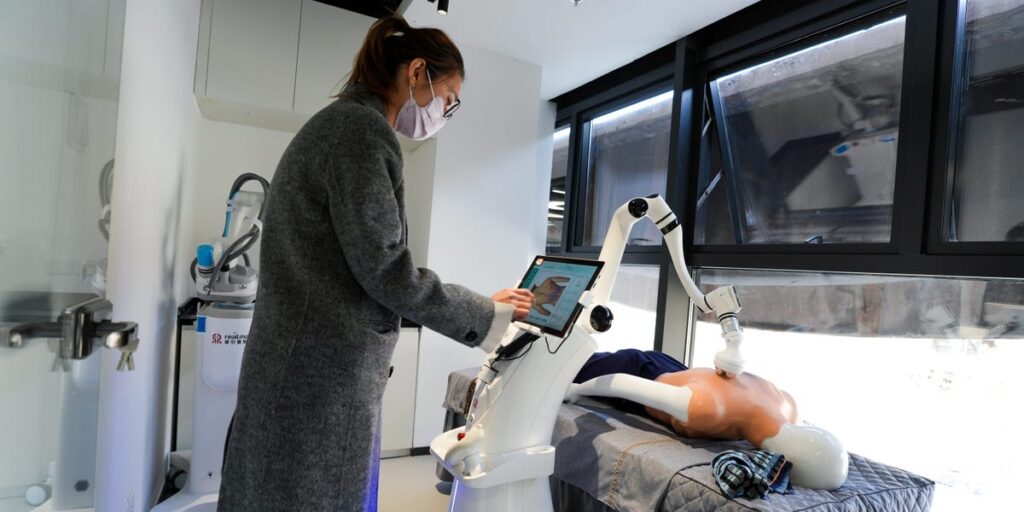By 2045, robots and artificial intelligence could render most human jobs obsolete — and there’s little time to prepare for the fallout, according to Adam Dorr, director of research at the RethinkX think tank.
In a Wednesday interview with The Guardian, Dorr warned that machines are advancing so rapidly that within a generation, they’ll be able to perform virtually every job humans do, at a lower cost and with equal or superior quality.
Drawing from historical patterns of disruption, he compared today’s workforce to horses in the age of cars, or traditional cameras in the age of digital photography.
“We’re the horses, we’re the film cameras,” he said.
Dorr and his research team have documented more than 1,500 major technological transformations. In most cases, he said, once a technology gains even a few percentage points of market share, it quickly dominates — typically within 15 to 20 years.
“Machines that can think are here, and their capabilities are expanding day by day with no end in sight,” he said. “We don’t have that long to get ready for this.”
Still, he said, not every job is destined for extinction. Dorr believes a narrow set of roles may survive the AI takeover, especially those grounded in human connection, trust, and ethical complexity.
He pointed to sex workers, sports coaches, politicians, and ethicists as examples of jobs that could remain relevant.
“There will remain a niche for human labor in some domains,” he said. “The problem is that there are nowhere near enough of those occupations to employ 4 billion people.”
Dorr argued that the looming upheaval could lead either to mass inequality or to what he called “super-abundance” — a society where human needs are met without traditional labor. But achieving the latter, he said, will require bold experiments in how we define work, value, and ownership.
“This could be one of the most amazing things to ever happen to humanity,” he said — but only if we’re ready.
The AI takeover debate is heating up
Several top AI researchers and tech leaders have shared Dorr’s concerns, though views on which jobs will endure vary.
Geoffrey Hinton, often called the “Godfather of AI,” warned that “mundane intellectual labor” is most at risk. On the Diary of a CEO podcast in June, he said he’d be “terrified” to work in a call center or as a paralegal.
Hinton believes hands-on roles like plumbing are safer, at least for now, saying it will be a long time before AI is “as good at physical manipulation” as people.
In May, Anthropic CEO Dario Amodei told Axios that he believes that half of all entry-level white-collar jobs, including roles in tech, finance, law, and consulting, could disappear within five years.
But Nvidia CEO Jensen Huang and Meta’s Yann LeCun have pushed back, saying AI will transform jobs, not eliminate them entirely.
OpenAI CEO Sam Altman also said AI will displace many roles, but believes new ones will emerge, even if they look “sillier and sillier” over time. “We have always been really good at figuring out new things to do,” he said.
MIT economist David Autor took a darker view: AI may not wipe out jobs, but it could make people’s skills worthless, ushering in a “Mad Max” economy where many fight over a shrinking pool of valuable jobs.
Read the full article here


